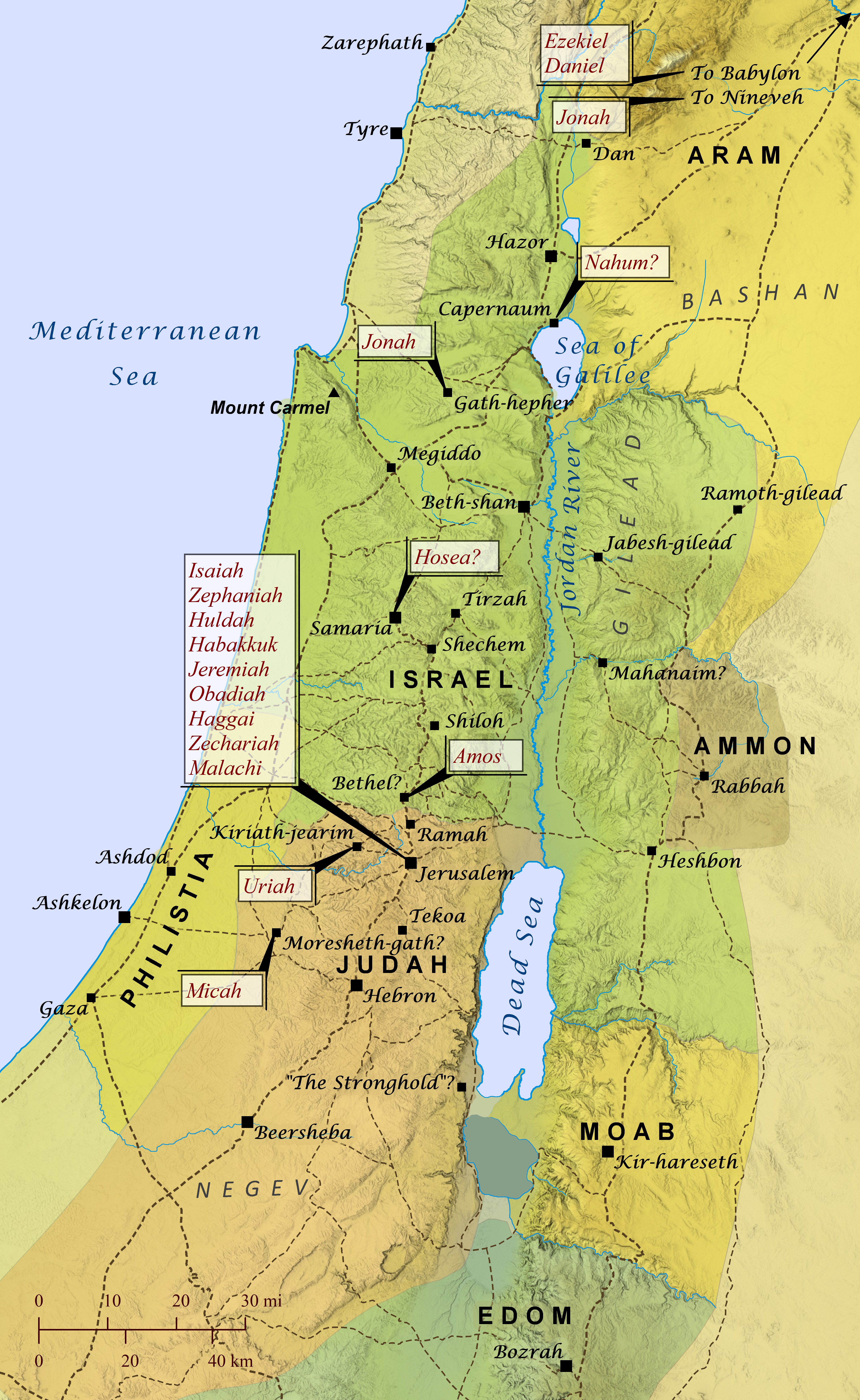Readers’ Version
Literal Version
1 In Dareyavesh’s (Darius’s) second year as king of Persia, on the 1st of the sixth month, the prophet Haggai brought Yahweh’s message to the governor of Yehudah, Zerubavel (Shealtiyel’s son), and to the high priest, Yehoshua (Yehotsadak’s son), telling them that[ref] 2 army commander Yahweh says, “These people say that it’s not the right time to rebuild Yahweh’s residence.”
3 Then Yahweh gave this message to the prophet Haggai to tell the people:
4 Is it a time for all of you to live in your panelled houses, while Yahweh’s temple lies in ruins? 5 So now army commander Yahweh says: “Decide what you’re all going to do. 6 You’ve all planted a lot, but only harvested a little. You’ve eaten, but it never fills you. You all drink, but never enough to satisfy you. You put on clothes, but never feel warm enough. You earn wages, but your pockets seem to be full of holes.”
7 So army commander Yahweh says again: “Decide what you’re all going to do. 8 Go up into the hills and bring back timber to build the temple. This will please and honour me,” says Yahweh.
9 “You expected much, but gained little. Anything you brought home, I blew away again. Why? Army commander Yahweh says it’s because my residence is still in ruins, while you’re all busy working on your own houses. 10 That’s why the sky withholds the dew and the soil withholds its crops. 11 I’ve summoned a drought onto the land and into the hills, onto the grain and the new wine, onto the oil and crops from the ground, onto both people and livestock, and onto everything you all do.”
2 Thus YHWH he_says hosts to_say the_people the_this they_have_said not a_time_of to_come the_time_of the_house_of YHWH to_rebuild.
3 and_ the_message_of _he/it_was of_YHWH in/on/at/with_hand_of Ḩaggay the_prophet to_say.
4 Time to/for_you(pl) you(pl) to_dwell in/on/at/with_houses_of_your(pl) panelled and_the_house the_this is_desolate.
5 And_now thus YHWH he_says hosts set thought_of_you(pl) on ways_of_your(pl).
6 You(pl)_have_sown much and_harvested little you_have_eaten and_never to_satisfied you_have_drunk and_never to_have_fill you_have_dressed and_no to_warm to_him/it and_the_earns is_earning_wages to a_bag pierced.
7 thus YHWH he_says hosts set thought_of_you(pl) on ways_of_your(pl).
8 Go_up the_hills and_bring wood and_build the_house and_take_pleasure in/on/over_him/it and_glorified[fn] YHWH he_says.
9 You_turned_to_look to much and_see/lo/see to_little and_brought the_home and_blew_away in_him/it because_of what the_utterance_of YHWH hosts because_of house_of_my which it is_desolate and_you(pl) are_running each to_house_of_his_own.
10 On/upon/above/on_account_of//he/it_went_in yes/correct/thus/so because_of_you(pl) the_heavens they_have_withheld[fn][fn][fn] from_dew and_the_earth it_has_withheld produce_of_its.
11 And_called_for a_drought on the_earth/land and_on the_hills and_on the_grain and_on the_new_wine and_on the_oil and_on that_which it_will_bring_forth the_soil and_on the_humankind and_on the_cattle/livestock and_on all_of the_toil_of hands.
12 Then Shealtiyel’s son Zerubavel and Yehotsadak’s son Yehoshua, the high priest, and all the rest of the people listened to the voice of their god Yahweh via the words of the prophet Haggai, because Yahweh their god had sent him, and the people respected Yahweh. 13 Then Yahweh’s messenger Haggai passed this message from Yahweh onto the people, “Yahweh declares that I’m with you all.” 14 Then Yahweh inspired Shealtiyel’s son Zerubavel, the governor of Yehudah, inspired Yehotsadak’s son Yehoshua, the high priest, and inspired all the rest of the people, and they came and started work on the temple for their god, army commander Yahweh, 15 on the twenty-fourth day of the sixth month of the second year of Dareyavesh the king of Persia.
13 And_ Ḩaggay _he/it_said the_messenger_of YHWH in/on/at/with_message_of YHWH to_the_people to_say I with_you(pl) the_utterance_of YHWH.
14 And_ YHWH _stirred_up DOM the_spirit_of Zərubāⱱel the_son_of Shəʼaltiyʼēl the_governor_of Yəhūdāh/(Judah) and_DOM the_spirit_of Yəhōshūˊa the_son_of Yəhōʦādāq the_priest/officer the_high and_DOM the_spirit_of all_of the_remnant_of the_people and_they_came and_they_made work in_house_of YHWH hosts god_of_their.
15 in/on_day twenty and_four of_the_month in/on/at/with_sixth in_year two of_Dārəyāvesh the_king.
1:8 OSHB variant note: ו/אכבד: (x-qere) ’וְ/אֶכָּבְדָ֖ה’: lemma_c/3513 n_0.0 morph_HC/VNh1cs id_37iy2 וְ/אֶכָּבְדָ֖ה
1:10 OSHB note: Marks a place where we agree with BHQ against BHS in reading L.
1:10 OSHB note: We read one or more consonants in L differently from BHS.
1:10 OSHB note: Marks an anomalous form.

